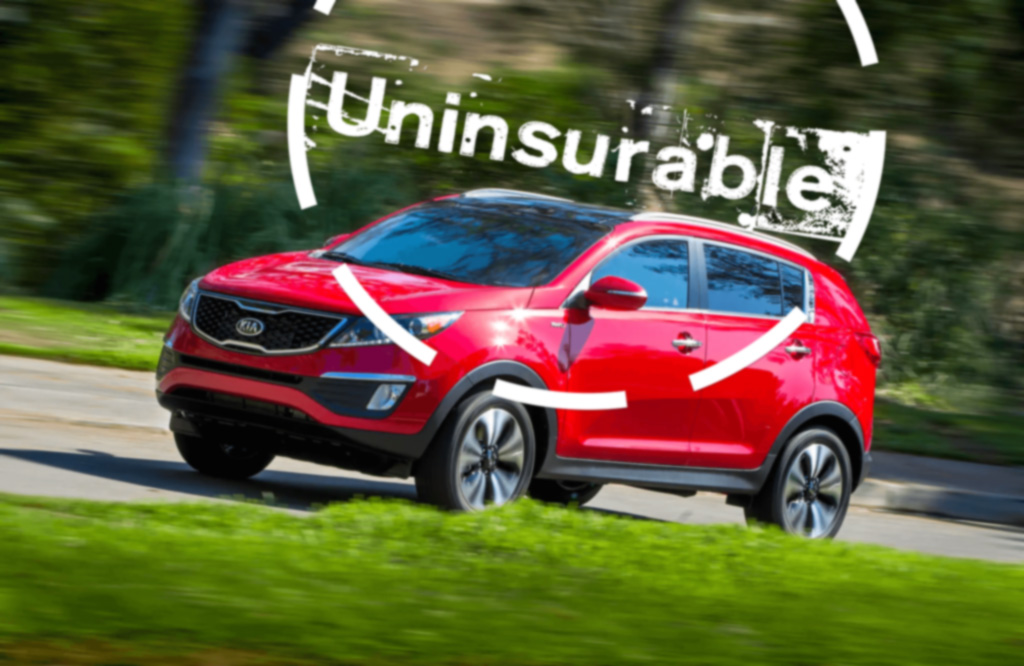Car Insurance / Car Insurance Buying Guide / The car insurance you really need
Reviewed by: Max Cho, Licensed Insurance Broker NPN 20377411
In this guide: Best car insurance / Recommended car insurance / When to buy / How to buy
What kind (and how much) car insurance you need comes down to one central question: how much can you afford to lose? While we each have a personal risk tolerance, we also each have a unique financial situation.
The more you have, the more insurance you need — and the more you have, the more you need the right insurance.
Car insurance can be broken down into two groups: - Coverage that protects (pays for injuries to) people
- Coverage that protects (pays for damages to) property
It can also be broken down like this: - Coverage that protects (pays for injuries and damage done to) other people
- Coverage that protects (pays for injuries and damage done to) you
Different kinds of car insurance address each of these groups.
In nearly every state, the law requires you to maintain liability car insurance for property damage you cause to others. You have the option to cover your own car with Uninsured Motorist coverage for property damage (UMPD), collision insurance (for crashes) and comprehensive coverage (not for crashes).
If you live in New Hampshire or Virginia, you have the option to skip car insurance if you can prove you could afford to pay for an accident out-of-pocket if you were at fault.
Which mix of car insurance you pick has a lot to do with your net worth and whether or not you have health insurance.
Car insurance that pays for injuries
In “at fault” states, you also must purchase liability coverage for bodily injury (physical harm you cause to others). In “no fault” states you maintain coverage for your own bodily injury through Personal Injury Protection (PIP). PIP is an option in many “at fault” states and you can also choose an additional medical coverage called MedPay. Another way to get medical expenses covered is Uninsured Motorist coverage for bodily injury (UMBI).
Uninsured/Underinsured Motorist coverage (UI/UIM)
Because this insurance is designed to protect you and your car, you should only pay for coverage you need to keep yourself out of financial trouble.
UI/UIM coverage includes Bodily Injury (UMBI) and Property Damage (UMPD) with coverage limits (usually) set separately, just like your regular liability insurance.
All of our recommendations regarding UI/UIM are on our UI/UIM overview page. Some recommendations for UMPD are summarized below as part of our discussion about collision coverage. Whether or not you want UMBI has a lot to do with whether or not you have health insurance or PIP.
If you have health insurance - If you have good health insurance, you might want some UMBI or just MedPay. Double check that your health insurance policy actually covers car-related injuries (some don’t).
- If you have health insurance with a high deductible or would struggle to pay out-of-pocket health costs, consider MedPay. It kicks in right away without needing to file a claim.
- Some states that require PIP don’t offer MedPay and vice versa.
If you don't have health insurance
If you don’t have health insurance, you should definitely have either PIP or UMBI coverage and the amount should be as much as you can afford — though your maximum will be limited by your regular Bodily Injury liability limits.
Liability insurance for bodily injury
We tend to want to pay as little as possible for insurance, but having the right car insurance is much better than having cheap car insurance — especially when you have a house (or other property), own a business, or have significant savings.
It is a good idea to have as much extra liability coverage as you can afford. One bad crash could bankrupt you if it results in a wrongful death or permanent disability lawsuit. The good news is that significantly more liability coverage doesn’t lead to significantly higher car insurance premiums. See how premiums change with increased coverage.
If your net worth exceeds $1M it’s time to consider umbrella insurance, too. Umbrella insurance is a liability insurance policy that is separate from your other insurances. Umbrella insurance kicks in when your car insurance and homeowners insurance policy limits have been exhausted. While it is technically separate from these other insurances, your umbrella policy will have liability coverage limits you must meet for both.
Car insurance that pays for property damage
There are three types of insurance that address property damage in a crash: liability coverage, collision coverage, and Uninsured/Underinsured Motorist. When you’re thinking about how to insure yourself (and where to save), it’s best to think about where you can afford to skip coverage — especially if you get similar coverage from another insurance type.
Collision coverage and UMPD
Whether or not you want collision coverage (and comprehensive coverage) depends a lot on how much your car is worth and whether or not you could easily replace it without feeling a big financial hit.
Here are some things to consider regarding collision insurance: - If you have an inexpensive car and can cover the cost of replacing your vehicle, collision coverage is not a good deal.
- If you have an expensive or relatively new car, whether you owe money or not, you may not want to pay to replace it (even if you can), so you should at least consider collision coverage.
- If you make a claim against your collision insurance, the cost of your premium may go up.
See how collision coverage impacts your car insurance premium and learn more about whether you really want it.
Here’s what to know if you’re thinking about UMPD and collision coverage: - If you don’t have collision coverage, UMPD is a good idea.
- If you have collision coverage, you probably don’t need UMPD.
- UMPD doesn’t have a deductible and making a claim is less likely to impact your premiums as much in the future, whereas collision coverage has a deductible and making a claim will impact your premiums not insignificantly for 3-7 years.
Comprehensive coverage
Comprehensive insurance is for everything that’s not considered a collision, but not really everything — there are exclusions which vary by insurer. The same reasoning for whether or not to get collision coverage (listed above) applies here.
You may want comprehensive coverage without collision coverage if: - you live in a place with a lot of car theft, or your make and model of car is a favorite among car thieves (like certain Kia and Hyundai models)
- you live in a place with wild weather (tornadoes, hurricanes, floods, fires, and hail)
- you live in a place where wild animals are common (deer, elk, even goats and squirrels)
See how comprehensive coverage impacts your car insurance premium and learn more about whether you really want it.
If you don't have significant assets to protect
If you have no significant assets to protect (i.e. you don’t own a home, drive an expensive car, have a lot of savings), there’s not a lot to lose if you cause a crash and can’t pay for damages that exceed your minimum car insurance as required by law.
Beyond the basics, you probably just want to make sure your injuries are paid for no matter who causes a crash.

Want to find the best insurance? Need help?
Coverage Cat shops for you. We search across dozens of major insurers and use data science to compare millions of real quotes. The result? The best combination of policies, coverage, and price for your personal financial situation.
Our promise:



